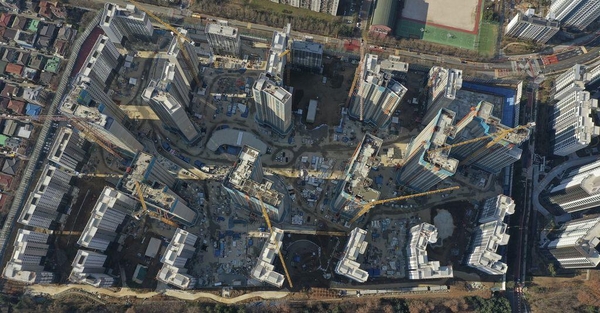Input 2020.12.23 15:30

The main goal of the amendment to the Construction Act promoted by the Ministry of Land, Infrastructure and Transport is to significantly strengthen the operating standards of construction-related mutual aid associations. In mutual aid associations, individual construction companies, etc., serve as members of mutual aid and guarantees. Construction mutual aid associations and specialized construction mutual aid associations are the two major construction-related mutual aid associations in Korea. The two mutual aid associations were launched with 100% investment by private construction companies. Operating expenses and project expenses are used as union membership fees, not the government budget. However, the Ministry of Land, Infrastructure and Transport has the obligation to authorize and supervise the mutual aid association in order to prevent it from becoming insolvent.
The amendment to this enforcement decree was announced on the 30th of last month. For construction-related mutual aid associations, the steering committee makes major decisions, but the amendment made the’Chairman of the association with the largest amount of investment’ excluded from the steering committee. This is to separate the operation of associations and mutual aid associations. Until now, there has been controversy over the fact that the president of the association served as the chairman of the mutual aid association and made budget management inappropriate.
The amendment added a rule to reduce the term of office of the steering committee to one year and limit the number of consecutive terms to one. In addition, it has also planted a mandatory regulation that “consults with the Minister of Land, Infrastructure and Transport in advance on the agenda proposed by the Steering Committee.” Regarding the reason for the revision, the Ministry of Land, Transport and Maritime Affairs said, “As the president of the association was customarily appointed as the chairman of the operating committee and even member members, the mutual aid association was virtually controlled,” he said. “A decision was made that contradicted the interests of the members as a result of investment in Kosuka CC.” did.
“By refusing to issue a guarantee, the Mutual Aid Association plays a public role such as a screen function that prevents distortion of the construction market through low-cost bids by ineligible companies.” “The Steering Committee’s agenda proposal procedure is incomplete, causing confusion. It is necessary to come up with an agenda after prior consultation with the Minister of Land, Infrastructure and Transport.”

The commission also said, “Reducing the term of office of the Steering Committee to one year and forcing meeting agendas to be reported to the Ministry of Land, Infrastructure and Transport in advance has the intention of giving the Steering Committee member with no expertise only the role of a bridesmaid in the unilateral policy of the Ministry of Land, Infrastructure, and Transport. He added, “The fact that the pro-government personnel are 12 or more out of 21 members of the management committee means that the Ministry of Land, Infrastructure and Transport will operate the steering committee at will.”
About 5,000 opinions have been posted on the notice board of the Ministry of Land, Infrastructure and Transport, saying they oppose this amendment. “The opportunity for members to participate in the Steering Committee is guaranteed by the Constitution of the Republic of Korea, but the Ministry of Land, Infrastructure and Transport, which created a bill that goes beyond the basic spirit of the Constitution,” “Does the term of a member of the Steering Committee improve their expertise?” It was an opinion such as “a wicked deceit to take over from.”
